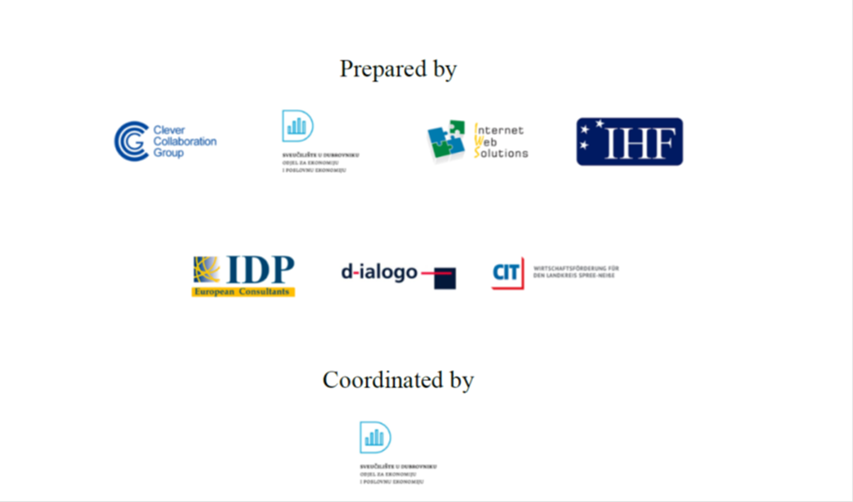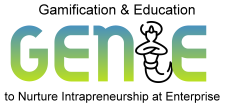Research and Analytical Activities Completed
The result of the research and analytical activities of the partners of the GENIE project is the innovative GENIE model of intrapreneurship, which is now available on the GENIE platform (https://genieproject.eu/assessment.php). GENIE platform also offers information on project aims, activities and results. The innovative GENIE Model of Intrapreneurship in micro/small and medium enterprises (MSMEs) summarises mechanisms for MSMEs to implement intrapreneurship involving and engaging staff and management to develop new ideas, business and management processes, products and services. The aim of the model is to identify different concepts of intrapreneurship and to answer how an intrapreneurship culture can be established in companies.
The model is prepared by project team (seven partners from six countries: Germany, Italy, Sweden, Belgium, Croatia and Spain) and outlines mechanisms for MSMEs to implement intrapreneurship by engaging staff and management to develop new ideas, business and management processes, products and services – all to sustain MSMEs’ innovation, competitiveness and growth.

The model is based on the following elements:
- Concepts of Intrapreneurship
- European context
- Intrapreneurship in academic literature
- Intrapreneurship drivers and inhibitors
- Management models of intrapreneurship
- Intrapreneurship policy framework
- Intrapreneurship best practices/lessons learned/case studies from large corporations
- The digital dimension of intrapreneurship
According to this model, intrapreneurship is argued as an emerging phenomenon fitting the new paradigm and value shift that many companies have started developing since the beginning the last decade. An intrapreneurship is nurtured by following environmental and cultural triggers:
- Encourage proactive thinking, sense of initiative and co-participation to decision making
- Support employees’ development of trans-functional skills which are instrumental in strengthening their new status – and related attitudes
- Contribute to the emergence of a business environment that gives the chance to create productive and effective business relationships
- Allow dissenting opinions to be expressed and disclosed – upon critical, rational and motivated assumptions
- Establish cross-functional and cross-hierarchal feedback systems for mutual commitment and value proposition

